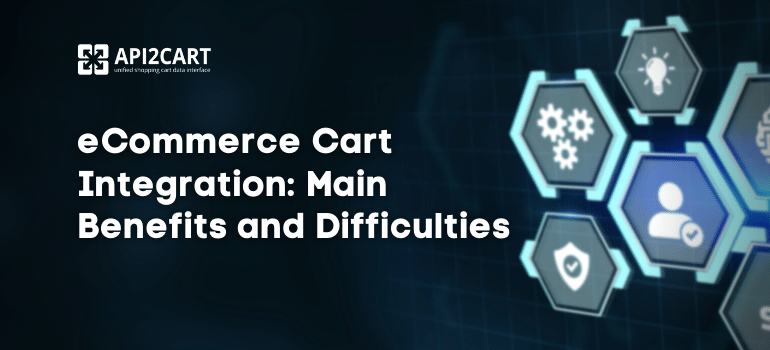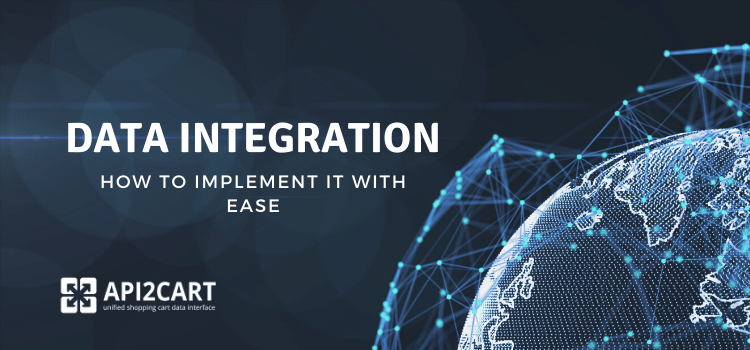
Today, eCommerce software providers that aim to grow their businesses and expand into new markets need to place a huge emphasis on eCommerce cart integration. With such integration in place, they can easily provide superior services to their target niche.
In simple terms, eCommerce cart integration involves using software code to connect an application to a shopping cart solution such as Magento, WooCommerce, or Shopify. This integration allows software providers to provide their key services to e-retailers by getting the ability to manage data related to orders, products, shipments, taxes, warehouse stocks, and the list goes on.
Below, we’ll like to dive deeper into the concept of eCommerce cart integration, showcase the definition and main aspects of an API, and reveal to you how to easily overcome any integration difficulties and develop robust and reliable API integrations.
What Actually is an API?
An API, also known as Application Programming Interface, is the connection created with code that allows two or multiple applications and systems to communicate with each other. For example, it can be used as a “middle man” that will enable you to perform a request to the shopping cart’s server and then comes back with an answer.
You can normally use one of the following methods to work with an API:
- GET: pull information related to a specific query, product, or customer
- PUT: update pieces of information, such as product descriptions or warehouse stocks
- POST: create a new category or product listing
- DELETE: delete an actual item in one of your clients’ stores
The most common types of APIs you can find today include:
- SOAP (Simple Object Access Protocol): this is a unique protocol that uses the XML format to transfer data seamlessly and whose main function is to define the method of communication and the structure of the message.
- JSON-RPC: this protocol uses JSON to transfer data between systems.
- XML-RPC: similar to JSON but uses an XML format, using minimum bandwidth.
- REST (Representational State Transfer): this is not just a protocol but also a set of architectural principles. REST needs to follow a certain set of characteristics to function properly, including simple interfaces.
eCommerce Cart Software API Explained
For retailers, shopping carts are crucial for facilitating the purchase of their products, being responsible for accepting the customer’s payment method, and organizing the distribution of that sensitive piece of information to the payment processor and third parties. Typically, a cart has three main features:
- Stores product info
- Represent a gateway for the catalog, orders, and customer management
- Renders product data, site information, and category information
An eCommerce cart software API is responsible for connecting your solution to any shopping cart solution used by your existing or prospective clients to sell their products. The cart software API typically uses the methods presented above, namely GET, PUT, POST, and DELETE, to work with resources and give you unrestricted access to your clients’ data related to shopping carts.
The Importance of Developing a Shopping Cart Integration
Setting up an eCommerce cart integration is highly beneficial to you as a B2B software provider. First off, such integration enables you to help shop owners better organize and automate their operations and stay on top of any pending orders in their carts. Your retailers will most than likely want their data to be automatically transferred and updated on all of their platforms. By integrating your software with multiple shopping carts at once, you can allow them to work with all the data in a single interface and keep tabs on new customers.
Developing a reliable eCommerce cart integration comes with a proven number of benefits for you, which include:
- Gain the possibility to greatly expand your business and reach millions of e-shop owners across all the platforms
- Save time and costs on integrations when choosing a third-party integration service such as API2Cart that can connect your software to countless platforms at once
- Enjoy a broader and happier clientele by offering them new capabilities and improved features
- Gain access to all the data needed to perform your software functions and overcome any challenges related to data shortage or data theft
How to Develop an API Integration with eCommerce Cart Solutions?
You can now develop a reliable eCommerce cart integration with any type of shopping cart, be it WooCommerce, X-Cart, Shopify, Magento, or PrestaShop. However, as a rule of thumb, developing an API integration with the eCommerce cart solutions of your choice requires a huge financial investment.
First off, you need to consider the costs of hiring a team of dedicated developers with previous experience in the specific integration you want to implement. For example, suppose you need to perform an Amazon API integration. In that case, there is no point in looking for people with experience in WooCommerce integration because the APIs of these platforms are different. The more difficult the task, the higher their salaries will be, and you’ll probably end up paying over $5000 a month for successful integration to a single in-house developer.
Second, you need to consider the subscription costs, which are services necessary for your team. These could be code repository subscriptions, cloud services, CI/CD services, or similar subscriptions.
Third, you have to consider the maintenance expenses and server hardware costs, which could amount to over $1000 a month. Totally, you could pay up to $10k for a single integration. Fortunately, there is a cheaper and quicker way to perform an eCommerce cart integration.
You can now completely avoid all of these integration difficulties by using API2Cart. This modern third-party integration tool can connect your software with 60+ shopping carts at the same time, and it also offers you constant maintenance, upgrading, and support. You can actually use our TCO calculator to see for yourself how much money you can save by using API2Cart as your eCommerce cart integration platform.



